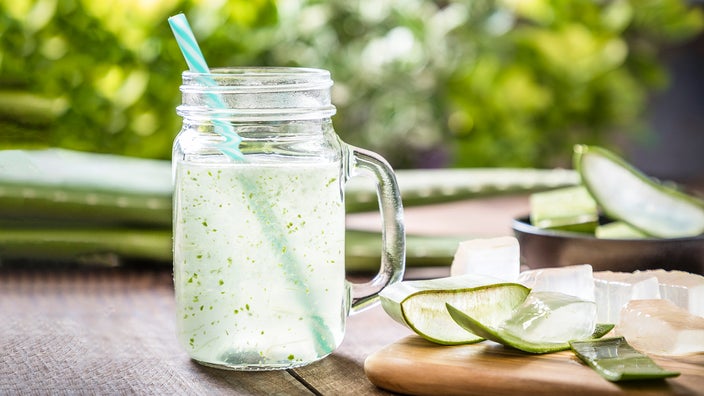Aloe vera for digestion is one of nature’s best-kept secrets—and modern science is starting to catch up. Known for its skin-soothing powers, aloe vera also has the potential to ease constipation, improve gut health, and calm digestive inflammation. But is it effective for everyone? And how exactly does it work?
Let’s break it down.
Why Aloe Vera Might Be the Gut’s Best Friend
Inside each aloe vera leaf is a gel-like substance rich in healing compounds: polysaccharides (especially acemannan), enzymes, vitamins, and antioxidants. These compounds offer:
- Soothing effects on the stomach lining
- Mild laxative properties from naturally occurring compounds
- Hydration and prebiotic action, supporting healthy gut flora
Aloe vera essentially acts as an internal balm for the digestive system—cooling, coating, and cleansing.

What the Research Says
One study published in the Journal of Research in Medical Sciences found that aloe vera significantly improved symptoms of irritable bowel syndrome (IBS) in patients, including reduced bloating and abdominal pain.
Additionally, the National Institutes of Health (NIH) reports that aloe vera supports nutrient absorption and may help in managing conditions like acid reflux and ulcers when used safely.
Meanwhile, registered dietitians interviewed by Healthline confirm aloe’s effectiveness for hydration, mild detoxification, and improved bowel movement regularity.
How to Use Aloe Vera for Digestion Safely
There are several ways to add aloe vera into your digestive routine:
- Aloe Vera Juice
Look for food-grade juice that is labeled as decolorized and purified. Start with 1 tablespoon diluted in water or juice. - Aloe Vera Supplements
These often come in capsules or powders. Ensure the brand uses pure inner leaf gel and is free from aloin (a strong laxative). - Fresh Aloe Gel
You can extract the clear gel from a leaf at home. Be sure to rinse thoroughly to remove all latex (the yellowish part), which can be too harsh for the gut.

Conditions Aloe Vera May Help With
🌿 Constipation
Aloe latex has a natural laxative effect—but commercial juices usually remove this component, offering a gentler result that still promotes regularity.
🔥 Acid Reflux
Aloe’s anti-inflammatory effects may soothe esophageal irritation and reduce heartburn. A 2015 study found aloe juice to be as effective as some medications in reducing GERD symptoms.
😣 IBS & Bloating
Hydration, enzyme support, and soothing action make aloe vera a well-rounded option for easing discomfort from IBS.
When Will You Notice Results?
- Immediate hydration effects: Within a day or two
- Constipation relief: Often within 24–48 hours
- Longer-term gut healing: 1–2 weeks of consistent use
Always start small and increase slowly while observing your body’s response.
Aloe Vera: A Gentle, Natural Digestive Ally
When used mindfully, aloe vera is one of the best plant-based tools for digestive support. It’s not a harsh stimulant or synthetic chemical—it’s hydration, healing, and balance in a leaf.
But like any natural remedy, it’s not for everyone. People with kidney issues, diabetes, or those on certain medications should check with their doctor before starting aloe.
Final Thoughts
If you’re tired of bloating, sluggish digestion, or reflux, aloe vera for digestion might be exactly the gut support you need. Affordable, time-tested, and increasingly backed by science, this green giant is more than a skincare superstar—it’s a digestive health hero.

